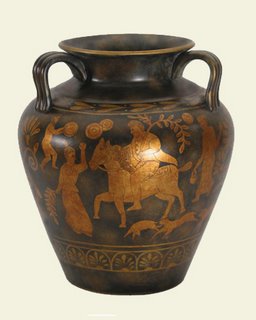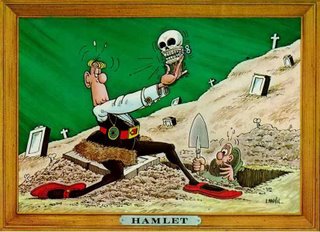
The New York Times
reports this morning of demonstrations in France infiltrated of by a group of young, violent criminals, the casseurs—the smashers. The demonstrations protest a new law allowing younger employees to be fired for any reason within the first two years. (Given what’s happened in America to the implicit contract between employers and the employed over the last 20 years or so this phenomenon seems a bit autre but that’s another topic.)
I’ve seen ‘smashers’ in like situations my whole life—riots across the United States against the Vietnam War, Martin Luther King’s assassination, and on and on. I’ve attended demonstrations against the war in Iraq and experienced the tension among participants, from granola pacifists to Palestinian revolutionaries to skinhead fascists to contemptuous Wall Street types.
Living in New York City I’ve wondered about the Draft Riots during our Civil War. Raised as a Yankee with a view of North as noble how can one understand three days of complete anarchy replete with arbitrary destruction, beatings, killings and public lynching? What lessons can be drawn from these happenings? What are the causes and how can we fix it? Or is it too much a part of humanity and the way of the world to be fixed?
The Small Writ LargeBy my nature I cannot help but see these things as examples of things larger—and smaller. 180 million died in wars and various manmade calamities in the 20th century alone. Why? Violence within families continues to shock us as it comes to life through the newspapers and from those we know and love. Why?
The 20th century brought us the modern age—when rationalism would bring peace to the nations, when science and technology would allow us to rebuild the world in a way that wouldn’t keep burning down. But it kept burning down and it still is. There hasn’t been an end to history but we’ve certainly built weapons capable of bringing it on. Why? It doesn’t make sense. Despite President Eisenhower’s warnings regarding the ‘Industrial-Military Complex’ we’ve seen an unprecedented growth of the military over the last 25 years. Despite all the talk regarding the new threats we face we’re building multibillion-dollar weapons designed to respond to old threats we no longer face. (Perhaps we’re just getting geared up for the Chinese? After all they should be capable of challenging us in just a generation or two.) What is it about humans that we seem to be hardwired to kill each other? Is it that the lizard part of our brains still rules us to the extent that, if not Now, it’s gonna be Apocalypse Soon?
Part of me has always been an End Timer, a sort of New Age Left Behinder. I’ve had a sense of The End around the corner my whole life. I’m amazed to find myself alive, and almost fifty, living on the other side of the year 2000. I hadn’t really counted on the way life just “keeps on keepin’ on”—at least for me … so far. My mom’s passed on, my brother, all my grandparents, Aunt Betty, and on and on.

Still, life just keeps pushing up all around me. Just yesterday, my sister-in-law
Sallie Sydnor Payne Carson (husband Brett) gave birth to a perfect, 22-inch, 9-pound, 14-ounce girl—Brantley Ann Carson. Here she is with her cousin Grace. My friends Don and Katie are due with their first child in the summer. Amazing!
Rationalism does not hold the answers. Our lives, and love, and hatred, violence and death are all--at core--mysteries. In a post-modern age, religion struggles to make sense of the world. Christianity tells of creation; struggles between God and mankind; convents made, broken and made again; God’s perfection and humankind’s imperfection reconciled through Christ’s grizzly death and resurrection. Father, Son and Holy Ghost—Creator, Redeemer and Sanctifier. The Hindus offer Brahma, Vishnu, and Shiva—Creator, Preserver and Destroyer. These traditions hold glorious/bitter mysteries in their hearts and can, at their best, help followers to fully understand and embrace life.
God both creates and destroys. And, it seems, mankind must as well. Perhaps that is what they meant--in part--when the Ancients said that we are made in God's image.
In closing, I leave you with a bit of wisdom grounded in the belief that if it's in a Broadway musical it must be true:
“The opposite of war isn’t peace, it’s creation!”
--La Vie Boheme, Rent, Jonathan Larson



















